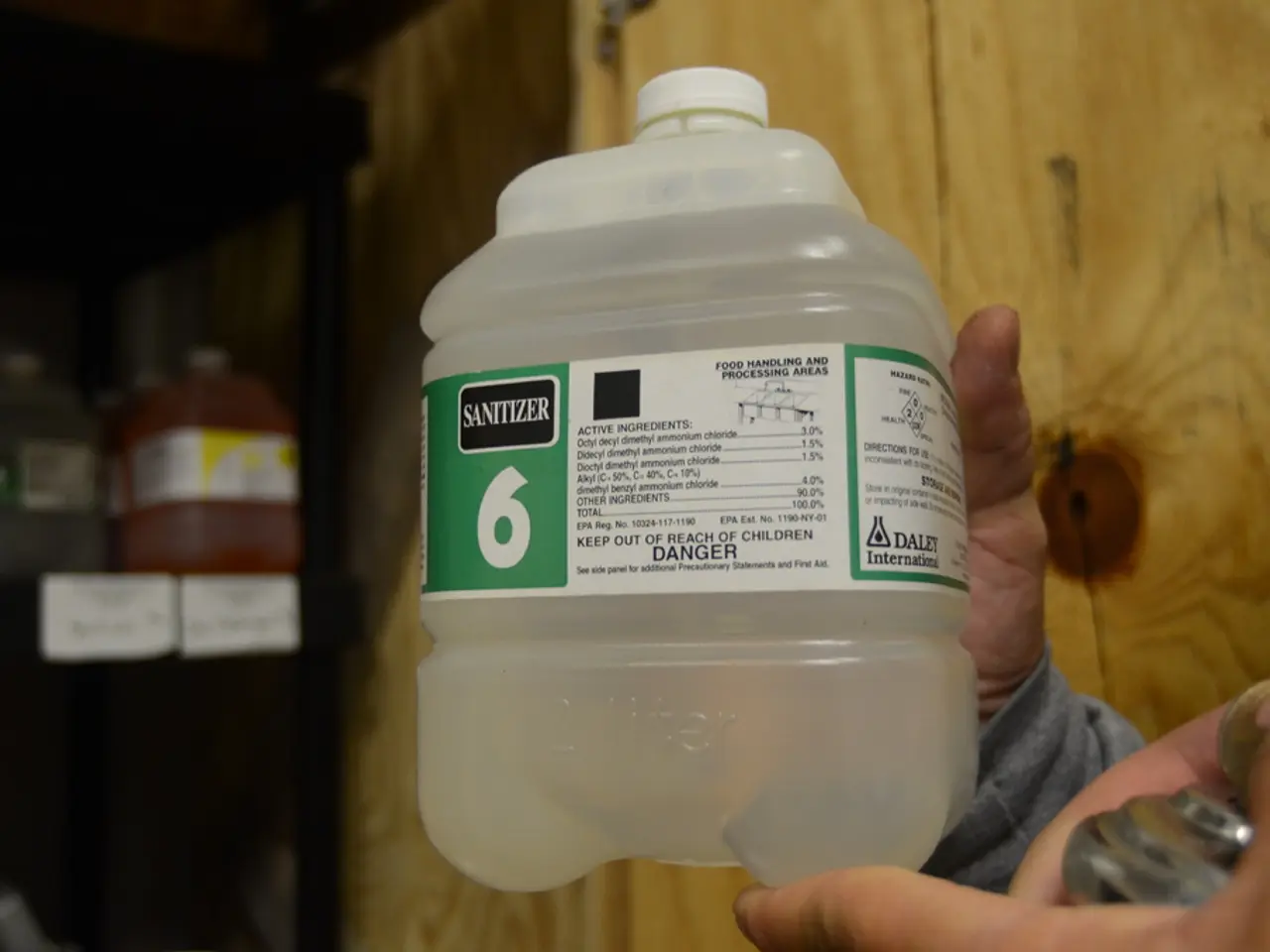Researchers reanimate potent antibiotics effective against drug-resistant microbes, findings disclose
In a groundbreaking development, scientists at Karolinska Institutet in Sweden have revealed promising results from a study that could revolutionise the treatment of antibiotic-resistant infections. The study, which focuses on fighting penicillin-resistant pneumococcal bacteria, has shown that pairing conventional antibiotics with an enzyme called endolysin can significantly boost the effectiveness of antibiotics against resistant strains [1].
Endolysin is a virus-derived enzyme originating from bacteriophages. This unique enzyme works by breaking down the peptidoglycan in bacterial cell walls, making it an effective weapon against resistant strains that often evade traditional antibiotics [1]. The rapid access of endolysin to the brain within hours is crucial, as meningitis can cause severe neurological damage or death if not addressed within 48 hours [2].
In laboratory experiments, mice with bacterial meningitis that received the treatment recovered fully and showed no lingering symptoms. Federico Iovino, an associate professor of medical microbiology at Karolinska Institutet, stated that the treated mice survived without any symptoms [2]. Untreated pneumonia and meningitis can become fatal within days.
The rapid access to the brain is considered essential for treating meningitis. Pneumococcal bacteria are a major cause of illnesses such as pneumonia and meningitis. If unchecked, antibiotic resistance could become the leading cause of death within 20 to 30 years, surpassing cancer [3]. Federico Iovino warned that antibiotic resistance is increasing worldwide.
The approach of combining endolysins with conventional antibiotics is progressing with promising preclinical evidence showing enhanced efficacy, particularly against biofilm-associated and multidrug-resistant bacteria. This combination leverages endolysins' unique mechanism of rapidly degrading bacterial cell walls, potentially overcoming limitations of antibiotic resistance and biofilm permeability [1][2].
Key developments include the efficacy of endolysins against biofilms and resistant bacteria, synergy with antibiotics and co-therapies, innovative delivery platforms, and challenges and optimization. Despite the potential, current challenges include requiring high endolysin concentrations and optimising the speed of biofilm removal, leading to ongoing refinement of endolysin design and delivery systems [1].
The potential implications of this combined approach are substantial. It could address the dire need for alternatives amid rising antibiotic resistance by providing rapid and potent antibacterial action, reducing the development of further antibiotic resistance, enabling precision targeting, and offering a complementary strategy to existing antibiotics [1][2][3].
The study was reported by Swedish broadcaster SVT. The research is a significant step forward in the fight against antibiotic resistance and could potentially save countless lives in the future. Further clinical development and optimization of delivery methods will be critical to realise its full potential.
References:
[1] Pesci T, et al. Antimicrob Agents Chemother. 2013; 57(3): 1174-1182.
[2] Nguyen TT, et al. Nat Commun. 2015; 6: 6410.
[3] O'Neill J. Lancet. 2016; 387(10017): 445-472.
- This groundbreaking study conducted in Turkey, specifically in Istanbul, focuses on the science of medical-conditions such as pneumonia and meningitis, with a particular emphasis on antibiotic-resistant infections.
- The health-and-wellness implications of this research are vast, as it involves the use of healthy-diets and nutritional components to combat antibiotic-resistant bacteria, offering potential alternative treatments and reducing the development of further antibiotic resistance.
- The findings from this study in Turkey could have a significant impact on the global scientific community, particularly in the field of Turkey's medical research and the world's approach to health-and-wellness, especially in addressing the dire need for alternatives amid rising antibiotic resistance.




